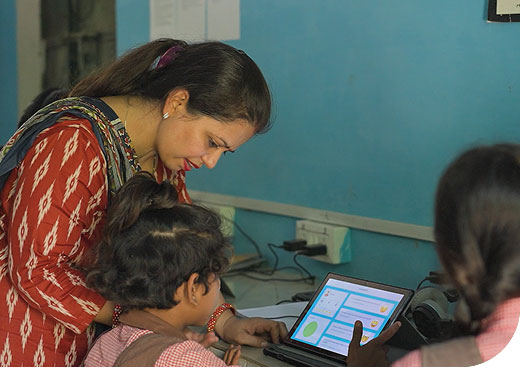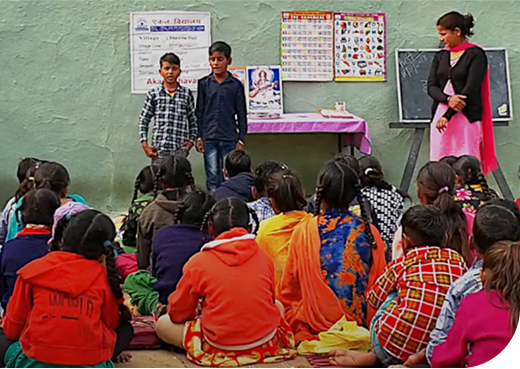The biggest breakthroughs in EdTech don’t always come from boardrooms. They’re often sparked by developers who build digital solutions to tackle real-life problems. That’s the vision behind the Code for Bharat Hackathon.
The Code for Bharat Hackathon, conducted under the SwiftBharat initiative, marked a bold new step toward building a thriving developer ecosystem for education in India. Co-hosted with UBS, the hackathon brought together over 120 tech volunteers for a single-day challenge. The hackathon invited volunteers to build solutions for real-world problems sourced from schools and classrooms across India. From financial literacy to geography quiz, digital solutions were designed on pressing needs identified in classrooms.

Matthias Schacke, Head of India Service Company and GOTO India at UBS, inaugurates the Hackathon
At the heart of this initiative lies a powerful idea: if we want to solve India’s most pressing education challenges at scale, we must build with and for Bharat, for the 150 million users in under-resourced schools who face systemic barriers to learning every day.
Developers formed cross-functional teams, selected problem statements mapped to the SwiftChat developer ecosystem, and built prototypes designed to plug into SwiftChat’s open architecture. All teams worked on building open, modular solutions that could integrate directly with the SwiftChat developer stack.

UBS Volunteers working behind the scenes to build AI-powered solutions on SwiftChat
The three winning teams built solutions that focused on personalisation, engagement, and accessibility.
One team created an interactive geospatial bot that allows users to explore a location and its surroundings using a simple, visual interface. With features like dynamic maps, distance measurement, and exportable maps, the bot is well-suited for geography lessons.
Another team built Globe Scout, an AI-powered learning bot that teaches geography lessons through adventure. With a chat-based interface, students can explore countries, cities, and landmarks, making learning intuitive, engaging, and mobile-friendly.
The third team designed a trivia quiz chatbot. Users can choose topics, set difficulty levels, and answer multiple-choice questions, making learning fun and competitive.
For UBS, this collaboration reflects a deeper alignment with its commitment to purpose-led innovation. And for volunteers, it was a unique opportunity to build solutions that could touch the lives of millions.
The Code for Bharat Hackathon is the beginning of building SwiftChat’s developer ecosystem under SwiftBharat. As we expand the SwiftChat developer ecosystem, we’re creating spaces for mission-driven developers to co-create scalable, AI-powered solutions that make EdTech more accessible. This is a shared mission where coders, educators, and innovators come together to build what Bharat truly needs.
Read More from
ConveGenius



Himachal Pradesh Ranks Among Top 5 in PARAKH Rashtriya Sarvekshan 2024—A Story of Reform, Data, and Determination
Himachal Pradesh has emerged among the top 5 states in PARAKH 2024, proving that data, diagnostics, and determination can transform outcomes. Spearheaded by ConveGenius.AI, Himachal blended real-time data, use of technology, and targeted academic remediation to build a high-impact model. Discover Himachal’s blueprint for improving learning outcomes at scale—without reinventing the wheel.
Learn More
"It Feels Like I Have a Co-Teacher Now”—A Teacher’s Take on Using SwiftPAL
Imagine being a teacher tasked with finishing the syllabus while also supporting students who’ve missed weeks of school. It’s not just hard, it’s overwhelming. In this story, discover how one teacher in rural Uttar Pradesh uses SwiftPAL, an AI-powered co-teacher, to make personalised learning possible for every student.
Learn More
Ekal Foundation Partners with ConveGenius to Transform Single-Classroom Schools Across 85,434 Villages in Rural India
Bringing digital learning to Bharat’s heartlands, ConveGenius and Ekal Foundation are transforming 100,000 rural schools through culture-rich education. This initiative blends technology with tradition, ensuring every child—no matter how remote—can access quality, value-based learning.
Learn More
